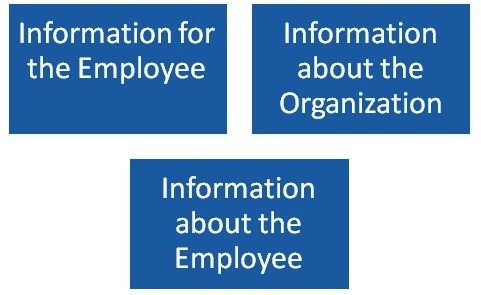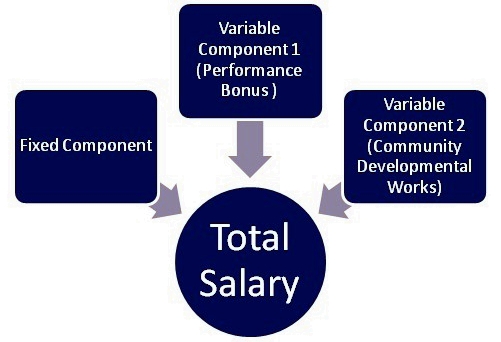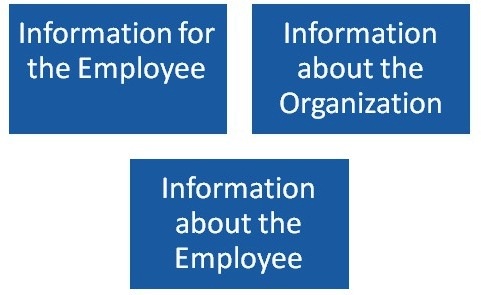Hack:
Creating a link between Compensation system and Corporate Social Responsibility (CSR) - A New Approach

- The Social Benefit Points (SBP) earned by the employees can be handled by a third Party (Independent Agency).
- This Agency should act like a registry (Database) of SBPs earned by the employees of the organisation. The Agency may also handle SBPs from other organizations (employees) as well.
- The Agency can put up the details of SBPs on the Web, so that the employees may know where they stand when it comes to Community Developmental works.
- Not only that, the average SBP per employee earned by the organization can be found out (provided many organizations are enrolled with the Agency).

Benefits for the Organisation:
- A real boost for Brand Image and Brand Value for the Organisation.
- The Average SBP per employee of an organization will show the status of CSR within the organisation.
- Long term gains are highly possible for the company.
- The concept of sustainable growth is instilled into the minds of the Corporate.
- The employees can know the status of their SBP (through Web).
- Other Organizations can see the history of employee (With regard to their SBP/Community Developmental Works), and thereby,the employees have an opportunity to showcase their achievements to potential employers.
Benefits for the Society:
- The Third party for handling the SBP has to be instituted. And a dynamic Web program for SBP has to be set up.
- Convey the changes done in the system to all other stakeholders by holding Press conferences & so on.
- Announce the names of the possible beneficiaries (Villages or some Localities) of such a system .


Very interesting article. I like the Village concept, it brings reality into the process. I would argue that a stronger link could be made between villages and the economic activity of the company : invest in villages whose ecosystem is somehow linked to the activity of the company (talent, raw materials, potential market, ...).
There is probably a need also for long term benefit calculation, that would demand involvement of finance officers, so as to be able so sell the project to c-level people.
- Log in to post comments
Thanks. I agree with you. There should be a strong link between Villages (& other less developed areas) & the Corporate world. CSR should not be an eye-wash exercise, but should be a productive one. Corporates should try to shed their 'Profit-centric' Approach. Sounds easy, but hard to Achieve. I strongly believe that 'sustainable development' is the need of the hour.
And when it comes to the calculation of benefits (arising out of CSR iniatives), a mechanism has to be developed.
- Log in to post comments
I oppose using compensation systems solely to change people's mindsets. I don't think we are addressing the key barriers of adopting CSR initiatives among employees and there are negative consequences of incentivizing people for things which we want to institutionalize and make it as part of the culture. A key downside is curbing intrinsic satisfaction and motivation for doing things which are right. When you incentivize people they will come to expect it and will do things if they get compensated for it. Is this the culture that we want to promote? CSR is also quite an antithetical concept to purely mercenary concerns. This is the problem that we have today on trying to promote a social purpose beyond financial gains for the long-term. So I find this proposal a bit contradictory to promoting CSR adoption.
- Log in to post comments
Thanks for your comment. I would like to differ from what you have said. Money is definitely a motivation. Frankly speaking, I believe that no employee would come forward to help the community on their own. Incentive will definitely be a form of encouragement in making the employee play a role in the development of the community. First the employees should know the ground reality (in villages/ under developed areas). Most of the employees won’t know the plight of the residents in these villages. Hence I believe that this strategy will be an appropriate one.
- Log in to post comments
There are other sources of motivation besides money which needs to be considered particularly the impact and implications on longer-term behavior and culture. Other ways to inculcate social responsibility:
- leadership role-modelling (top management is a key driver of setting the values and practices for the organization). A credible leader and mentor which employees respect have great leverage in instilling values that are adopted in the organization. Through demonstrations of top management in various outreach programs and the commitment to the cause and change that it has created for people and the environment, employees will come to realize the type of values that top management will recognize in return and expect its employees to possess. For example, employees who clearly do not posses this core value of the company should not be promoted to leadership positions. In some homes, this is the value that the family adopts. Unfortunately, our heavy financial orientation in decision-making clouds the continuous adoption of good values at times.
- Making CSR as part of leadership development program. CSR is part and parcel of your readiness of becoming a servant and transformational leader. There are studies for example that show that students who participate in human development programs in destitute communities show greater leadership skills and undertake leadership positions subsequent to their experiences. The sense of satisfaction, duty, and ability to create a difference inspires people to action and create changes. Great leaders do not expect to be paid for their service in order for them to do something for their employees or people - unfortunately we have scarcity of great leaders in companies running today.
- institutionalizing the requirement for community service by getting employees involved in meaningful projects that will create tangible outcomes for people. Many consulting companies for example, have requirements for their partners and senior management to be part of a non-profit organization or to be involved in community service as part of their leadership development. The satisfaction that you get from seeing that you are able to help others, particularly those whose lives you are able to transform and elevate to a greater level creates the momentum for inspiring and creating a difference that will help organizations in return to prosper in a sustainable manner. The appreciation that you receive from those whose lives you are able to touch provides a far greater sense of satisfaction than the monetary rewards for doing it.
In summary, I think providing money to encourage a non-financial orientation like CSR is not only contrary to the essence of CSR but is also wasteful with potentially negative consequences to behavior and culture in the long run.
- Log in to post comments
I think you are missing the point. The main theme of the hack is 'creation of responsible corporate citizens (that includes even the top management) ' . I have made some assumptions. They are
- Most of the Employees are not aware of the ground reality (Plight of the Villages / under-developed areas).
- Employees are not naturally tuned (inside their heads) to help the under-privileged.
- Employees need some kind of a motivation (more during the initial stages) to make them undertake community developmental work.
I believe that linking of a part (just 15 %) of the salary to the performance of the employee in community developmental works will make the employee aware of the situation.
Not only that, when an employee does more amount of CSR work, obviously he can be given better incentives. I dont see anything wrong in that. The point is “Helping the Under-privileged’. If my framework succeeds in doing that, then I will be the happiest person on earth.
- Log in to post comments
- Log in to post comments
Thanks for the comment. Let’s hope such a thing will be implemented in future.
- Log in to post comments
I agree with this though it might be as applicable to smaller companies. Smaller companies doesn't yet think about branding but they are more focused on increasing their profits to expand and get more leverage in economics.
Though it might benefit the employee since there's an incremental increase in his/her salary... he/she might not have the same intent as you. CSR must be done with impact towards any society to make it sustainable. With this, we might create a culture of half hearted "help" towards the less fortunate, dont you think?
- Log in to post comments
- Log in to post comments
I think most experience of corporate responsibility suggests this works best ie is most engaging when it is linked to an organisation's main business area, ie a retail store does something in the local community eg a manufacturer does something to develop engineering skiills. So I I'd suggest supporting more opportunities than just adopting villages.
More importantly, I don't think Shameem Farouk was missing the point at all. Paying people for their individual contributions to responsibility risks dysfunctional outputs (in which individuals seek to maximise their time away from work regardless of the value to responsibility) and more importantly could detract from peoples' nature desire to be socially responsible themselves.
- Log in to post comments
- Log in to post comments






You need to register in order to submit a comment.